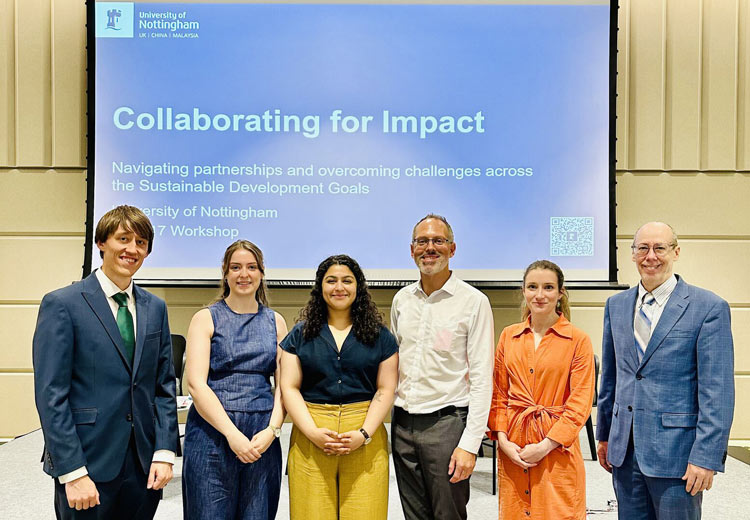Empowering Early-Career Researchers for Sustainable Solutions: Overcoming Barriers through Collaboration
Key Ideas
- Early-career researchers face challenges in obtaining buy-in for their sustainability solutions, emphasizing the need for collaboration and partnerships.
- University of Nottingham researchers share successes and frustrations in building partnerships with industry and government stakeholders.
- Research projects range from wastewater pharmaceutical removal to post-combustion carbon capture and plastic breakdown, highlighting the diverse sustainability efforts.
- Green ammonia research raises awareness about the need for public confidence in hydrogen applications for green energy, calling for policy support and industry collaboration.
The 2024 THE Global Sustainable Development Congress highlighted the crucial role early-career researchers play in addressing global sustainability challenges but often face barriers in gaining support for their innovative ideas. Jack Bobo, from the University of Nottingham, stressed the importance of collaboration for research to translate into tangible benefits. Researchers at the university detailed their experiences in forming partnerships with industry and government stakeholders. These included projects such as removing pharmaceuticals from wastewater, post-combustion carbon capture, plastic breakdown for new product generation, and green ammonia research as a green energy source requiring public confidence in hydrogen. Overcoming challenges like overwhelming research impacts, intellectual property agreements, infrastructure needs, and public perception issues were key themes discussed. The panel, consisting of researchers like Hiba Azim, Amy-Louise Johnston, Morag Nixon, and Luke Woodliffe, showcased the diverse sustainability efforts at the University of Nottingham. The session emphasized the necessity of empowering early-career researchers through interdisciplinary collaboration and the importance of industry partnerships to realize sustainable development goals.
